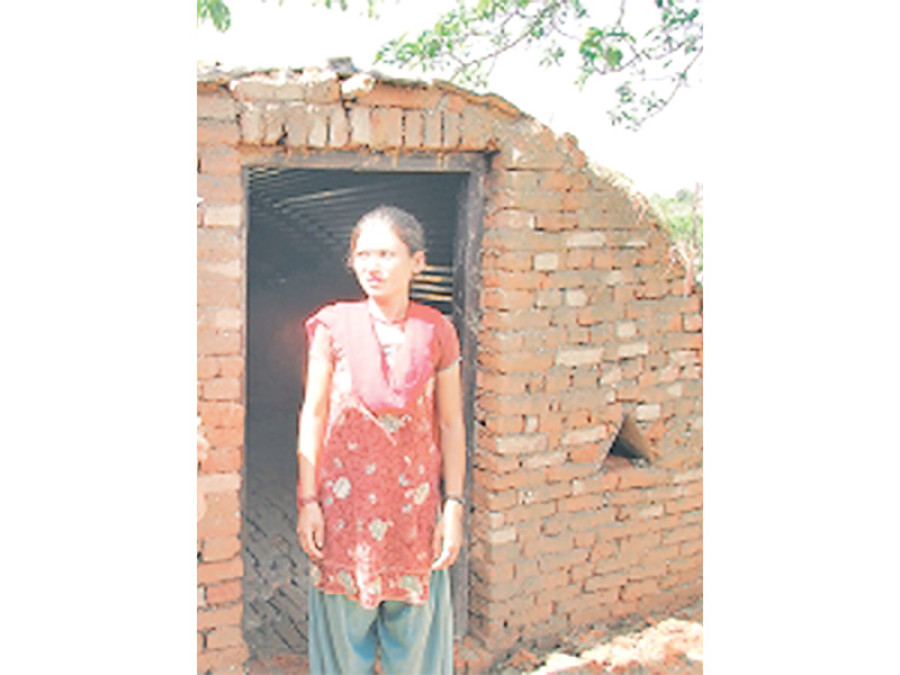Miscellaneous
Women count on own efforts save cash
Kalpana Pokhrel is counting the days till Dashain to rebuild her house which was demolished by earthquake.
Kalpana Pokhrel is counting the days till Dashain to rebuild her house which was demolished by earthquake.
Her husband Prakash, who is currently working in Saudi Arabia, had wanted to return home after the April earthquake to help resettle the family. However, Pokhrel advised him to stay put and work harder to come home with enough money to rebuild their house.
“We have not been able to pay the loan we had taken to send him abroad two-and-a-half years ago. I did not want him to make an early unplanned holiday and affect our already precarious economic condition unstable at a time when we need more money,” said Pokhrel. The 30-year-old from Choprak, Gorkha, said she had managed to move her family from a tent into a makeshift hut with help from her brother. The only source of income for the Pokhrels is the remittance her husband sends.
A research conducted by the Centre for Study of Labour and Mobility (CESLAM) shows that most women in the earthquake affected districts have asked their migrant husbands not to return and instead continue to provide support during rehabilitation by remitting additional funds.
These stories defy masculinity norms and the deeply embedded impressions about women’s and men’s capabilities and roles that women without their menfolk are hapless victims.
A research entitled Migration and Resilience Experiences from Nepal’s Earthquake shows that wives felt the need for remittance more than ever in the aftermath of the natural disaster in four districts—Sindhupalchok, Kavrepalanchok, Dhading and Kathmandu.
According to Bandita Sijapati, research director for CESLAM at the Social Science Baha, households with male migrants revealed that the remittance send by their husbands was enough to pay for family needs and their children’s education.
That is why they wanted the male members to stay back a little longer to earn enough to put a roof over their head.
“Almost all the respondents said that they endured a lot of hardship looking after their family, walking long distances to collect relief and live in tents without their husbands to help them,” said Sijapati. “However, they were also quick to point out that they were willing to endure all the hardship post-earthquake on their own so that their husbands could earn enough for their resettlement.”
Asmita Nepali from Dhading has a similar tale. She had also reassured her husband working in India that she was capable of looking after their two sons and advised him not to come immediately but focus on his earnings.
Sijapatai said she had found that rather than contributing towards preparedness, remittance helps households cope better in the aftermath of a disaster with cash, extra food and even jewellery, which provide a much needed safety net for the affected families.




 13.12°C Kathmandu
13.12°C Kathmandu







%20(1).jpg&w=300&height=200)

